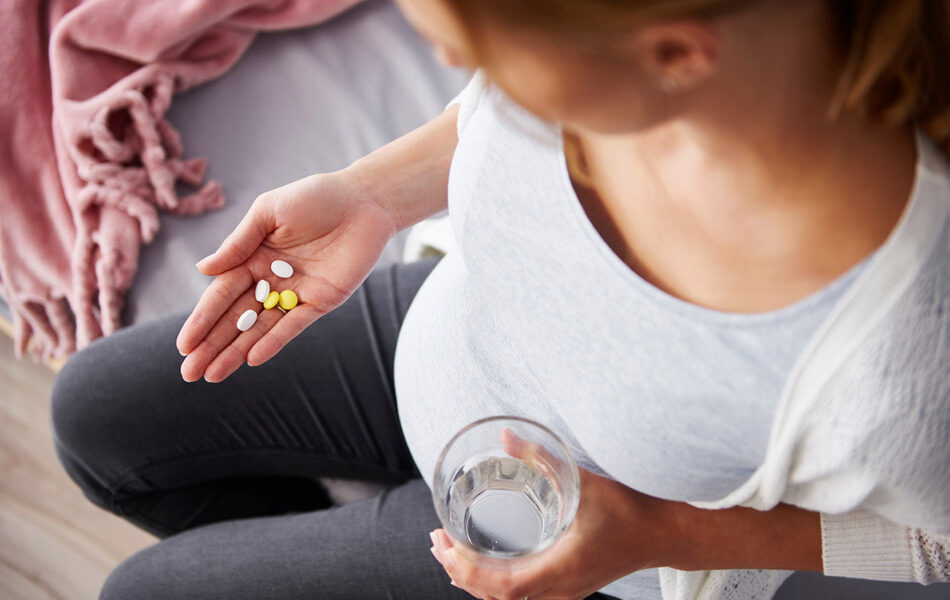Can You Take Probiotics While Pregnant? Unlocking the Power of Probiotics
The safe path to digestive wellness for expecting mothers

Pregnancy is an important time for a woman’s health, and it’s crucial to protect both the mother and the unborn child. However, it can be overwhelming to enter into this new world of too much conflicting information.
There is tons of advice from family, friends, and society on keeping you and your baby healthy, including whether probiotics are healthy during pregnancy.
Probiotics are good bacteria that can help promote digestion and immunity and decrease inflammation. Various factors have been studied about using probiotics during pregnancy. This includes preventing vaginal infections and preterm birth.
This post will discuss all you need to know about using probiotics during pregnancy. What are their benefits, how do they work, and most importantly, are they safe?
Can You Take Probiotics While Pregnant?
Probiotics are safe to consume through food and supplements throughout the entire pregnancy. While the research on probiotic use during pregnancy is still ongoing, probiotics haven’t been linked to pregnancy issues such as preterm labor, cesarean section, unusual birth weight, or pregnancy loss.
Probiotic use during pregnancy can help boost your immune system, which is much needed during pregnancy, as it changes during pregnancy so that it can defend both you and your unborn child against illness.
While certain immune system components are repressed, probiotics help boost others. This strikes a balance that can shield your baby from infection without endangering your well-being.
A mother’s microbiome has a significant impact on both her and her unborn child’s health. An infant is exposed to thousands of microorganisms as they travel through the delivery canal. It’s, therefore, crucial for the mom to have a lot of healthy bacteria to pass on to the baby.
A lot of doulas and midwives advise pregnant women to take probiotics. However, some of the options aren’t FDA-approved, so make sure to consult your doctor first and pick an FDA-approved probiotic.
If you’re also thought to be more “at risk” during pregnancy, or you have a medical condition like one that affects the immune system, you should always consult your doctor before taking any supplement, including probiotics.
How Do Probiotics Work During Pregnancy?
Probiotics in pregnancy work the same way in most other situations. They function by crowding out potentially harmful bacteria, taking up space, and consuming nutrients they need for reproduction.
They also help digest foods like fiber and resistant starch that your body cannot digest. Along the process, they produce a variety of beneficial compounds, including short-chain fatty acids which fuel your gut cells, helping build the gut barrier and preventing disease-causing microbes from spreading to other areas of the body.
Probiotics can also create a specific class of antibiotic-like compounds known as bacteriocins that are useful in fighting dangerous bacteria. Probiotics assist in preparing your immune system so that your cells are prepared to combat bacterial and viral invaders.
You ingest probiotics through your mouth and move them to your intestines, where they naturally reside. Once in the gut, they can perform various tasks and promote multiple health aspects.
When should I start taking probiotics during pregnancy?
Probiotics can be started at any pregnancy stage, whether in the first, second, or third trimester. However, starting probiotics doesn’t have to wait until you’re expecting. You can obtain long-term benefits from developing healthy vaginal and gut bacteria before pregnancy.
You can keep taking some strains until at least 6 months after giving birth, but if you’re taking a different type of supplement, make sure the strains are safe to take while pregnant and breastfeeding.
Beneficial bacteria can fertilize an infant’s gut because they are present even in breast milk.
Pregnancy can be hard on you. Supporting your body from the start will help you have a healthy pregnancy and set up a strong foundation for the health of your unborn child.
Benefits of Probiotics During Pregnancy
Probiotics can help reduce inflammation and bloating and boost immunity. They also play an important role in supporting a healthy pregnancy by providing essential nutrients for the growing fetus, reducing the risk of gestational diabetes and other complications that may arise during pregnancy.
Here are the main benefits of probiotic use during pregnancy and how they can help ensure a healthy pregnancy and support your and your baby’s health.
#1 Improved gut health
The body undergoes many changes during pregnancy; one of the most important ones is gut health. An unhealthy gut can cause various issues, from indigestion to severe constipation.
Consuming probiotics when pregnant can help improve gut health and reduce digestive issues.
#2 May reduce the risk of allergies in the child
Studies have shown that consuming probiotics during pregnancy may reduce the risk of allergies in the child. This is because probiotics help to strengthen the immune systems of both mother and baby, making them better equipped to fight off any allergens they may encounter after birth.
Taking probiotics during pregnancy can also help reduce your baby’s risk of eczema.
The World Allergy Organization (WAO) advises pregnant women at risk of giving birth to children with allergies and eczema to take probiotics.
Babies at risk of allergies can also benefit from probiotics in the womb and later in life.
#3 May reduce the risk of premature delivery
During pregnancy, it’s natural for the bacteria in the vagina and gut to change. An improper balance of the good bacteria can occasionally occur, resulting in various severe infections during pregnancy causing premature birth.
Taking probiotics can help maintain a balanced microbiome and lower the risk of early delivery.
What Prebiotics are Safe During Pregnancy?
According to research, it’s safe to take most probiotic strains over the long term, including Lactobacillus and Bifidobacterium. Even when taken orally, it has been proven that the combination of Lactobacillus strains can reach the vaginal tract.
They’ve also been shown to minimize thrush and bacterial vaginosis symptoms and the incidence of urinary tract infections.
Eating fermented foods such as kombucha, kimchi, yogurt, and sauerkraut is undoubtedly the best choice of foods high in probiotics that can help ward off bloating and gas, which can be annoying during pregnancy. However, it’s crucial to understand that this cannot be equated to consuming high-quality probiotic supplements.
The probiotics in these foods might not be as powerful or provide the same strains as the probiotic supplements.
Probiotic supplements replenish the beneficial bacteria in the stomach, ensuring they continue to support your overall body’s health.
When you feel like the pregnancy glow is out of reach due to morning sickness, upset stomach, diarrhea, or constipation, probiotic supplements can help improve your gut microbiome. They work by rebalancing bacteria, reducing inflammation, and, therefore, alleviating symptoms.
A Word From a Nutritionist
Probiotics are numerous beneficial bacteria that live naturally in a healthy human gut and support a variety of vital bodily processes. These good bacteria promote the immune system and brain function, assisting with digestion, bowel movements, detoxification, and long-term health conditions like irritable bowel syndrome (IBS).
There are many factors to consider while choosing the best probiotic for pregnancy.
They must first be safe. Any organism used in probiotic supplements must have completed tests proving it’s safe to consume and be recognized as safe by the FDA, which means it won’t harm you when used as directed.
Make sure to also consider your health requirements, the variety and types of strains available in the probiotic supplement, and clinical studies conducted on the product’s ingredients. Additionally, it’s also important to check the number of colony-forming units, and other details like the product’s expiration date, whether it requires refrigeration, and the presence of allergens.
Remember that as your gut microflora adjusts during the first few days of taking a new probiotic, it is possible to encounter mild side effects such as bloating, constipation, and gas, but they can go away within a few days.
Conclusion
Maintaining a balanced diet will help promote a healthy pregnancy. Make a list of meal ideas to incorporate probiotics into your daily diet. Cravings during pregnancy can overwhelm you, but don’t skip out on foods high in probiotics.
You can get probiotics from supplement capsules. However, it is always advisable to see your doctor if you are considering starting probiotic supplementation.
If you experience any allergies, call your doctor right away. The best way to go through pregnancy and ensure the baby’s healthy growth is to rely on a healthy lifestyle.

















































 Select your language:
Select your language: 








